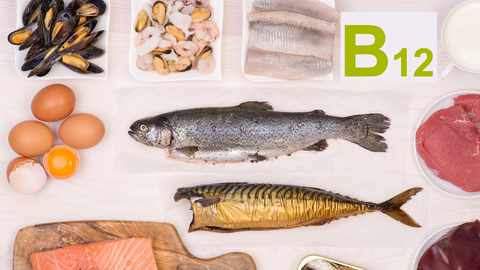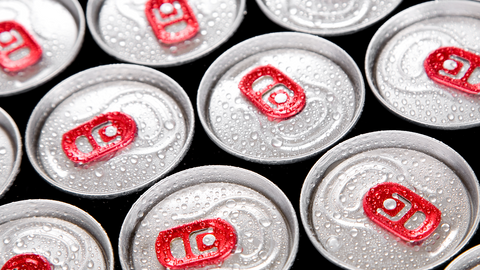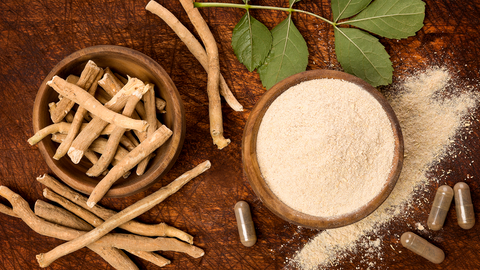Education

Struggling with sleep can be a maddening experience. It often feels like a cycle that feeds on itself. If you're in that camp, you've probably already tried some different approaches to regain your rest. But if you're still looking for inspiration, fear not: there are many, many things that can help your sleep if you're willing to experiment. We have scoured through the internet to find you 5 completely Out-Of-The-Box treatments for insomnia. Scroll down to get some new ideas to help you find a perfect night's rest.

These 5 Foods Will Get You Up To Speed.
Do you feel worn out? Are you forgetting stuff that you usually remember? Do you get worked up more easily than usual or find yourself getting sad over little things? If so, it’s possible that you’re not getting enough Vitamin B-12. You might have noticed that B-12 shots are all the rage right now (They’re even giving them in the mall!). There’s a good reason for that. B Vitamins are often called the ‘energy vitamins’ because they work like keys to unlock your body’s energy reserve. Let’s look at what Vitamin B-12 specifically can do for you and why you need it.

If you think energy drinks are harmless, think again. According to Dr. John Higgins from the University of Texas Medical School, experts are beginning to weigh in on the safety of energy drinks. The results aren't good. In an interview with CNN, he made the following statement:

Does getting a good night's sleep seem more and more elusive? Do you find yourself either not getting to sleep or waking up feeling unrefreshed? This time of year many people struggle with sleep, especially with the change in daylight savings. But with all of the natural sleep supplements available, it doesn't have to be so hard. If you're ready to do something about it, you're in luck! There are many natural sleep supplements that can help you regain that night of perfect slumber. Here is a list of natural sleep aids that can help you not only get to sleep but to regain that precious deep sleep you've been wanting.

From our earliest years, we are all taught the importance of taking care of our bodies. However, very little attention is paid to our brain health as an area of focus.
As our lifespans continue to increase, our cognitive wellness becomes an even more important issue. In our later years especially, our brain health will become a critical factor in our quality of life. So with that in mind, what determines how to keep your brain healthy?

What is your go-to method for stress relief? Do you take a walk? Listen to music? Do you binge-watch Netflix? Everyone experiences stress and has their own way of dealing with it.
What might be a minor issue for some can be completely overwhelming for others. While there is no one-size-fits-all response, some ways to relieve stress can be unhealthy and even harmful. If any of these behaviors describe you, perhaps it’s time to consider some new stress-relief strategies:

Life can feel nonstop—between work demands, family responsibilities, and the ever-growing to-do list, it’s easy to feel mentally drained. With so much going on, staying focused and keeping your energy up can be a real challenge. And while many of us reach for coffee or energy drinks to power through, is there a healthier, more effective way to boost our mental clarity and focus?

If you’ve been following health trends lately, you’ve no doubt heard people extol the wonder-working powers of turmeric in recent years. Well, in fact turmeric is an amazing spice in terms of what it can do for your body. It is not only a highly potent anti-inflammatory (as strong as pharmaceuticals according to some studies); it can also have major benefits for your brain. One of the main ingredients in turmeric (curcumin) may help increase blood flow to the brain and help protect against cognitive changes due to aging.

For some people, this is the time of year to wind down and get a vacation. But for others--namely students--the holidays mean something else entirely: crunch time. The finals season is here, and if you’re like most people, you’re trying to figure out how you’re going to get through it. At Procera, we want to help you not only survive finals, but to maintain your health and energy in the process.

With all of the holiday stress, many breathe a sigh of relief when they can return to their 'normal' routines. However, for an increasing number of people, the stress issue doesn’t end with the month of December.
According to the American Psychological Association, chronic stress is reaching the point of a public health crisis in the US. According to a recent study, the holiday season can be a time of unbelievable highs and also tremendous lows. The New York Post reported that many Americans feel that this time of year can be both wonderful and at the same time draining and full of stressors. Termed “Festive Stress,” 31% of US citizens refer to the season as ‘frantic,’ citing difficulty with gift shopping, family reunions, and the pressure to create ‘the perfect Christmas.’

If you’ve ever been to the doctor to get to the bottom of a fatigue issue, you know how frustrating the process can be. In fact, if you’ve complained of feeling constantly run down, then the likelihood is you probably didn’t get a straight answer.
There’s a good reason for this. Fatigue is such a general symptom that it can be very difficult and sometimes impossible to place. However, enduring, unexplainable fatigue coupled with difficulty sleeping, brain fog, memory issues, and poor digestion can point to a specific problem--one that remains officially off the books...

In a world of health fads and crazes, it’s easy to feel like science is changing every day. Some things that were healthy to our parents’ generation might now be considered dangerous and ill-advised. But in reality, most building blocks of good health never really change. It may not be revolutionary or sensational, but one of the best things you can do for yourself is take a multivitamin. Multivitamins provide a basic foundation of minerals and nutrients, and taking them can have a number of positive health benefits.



